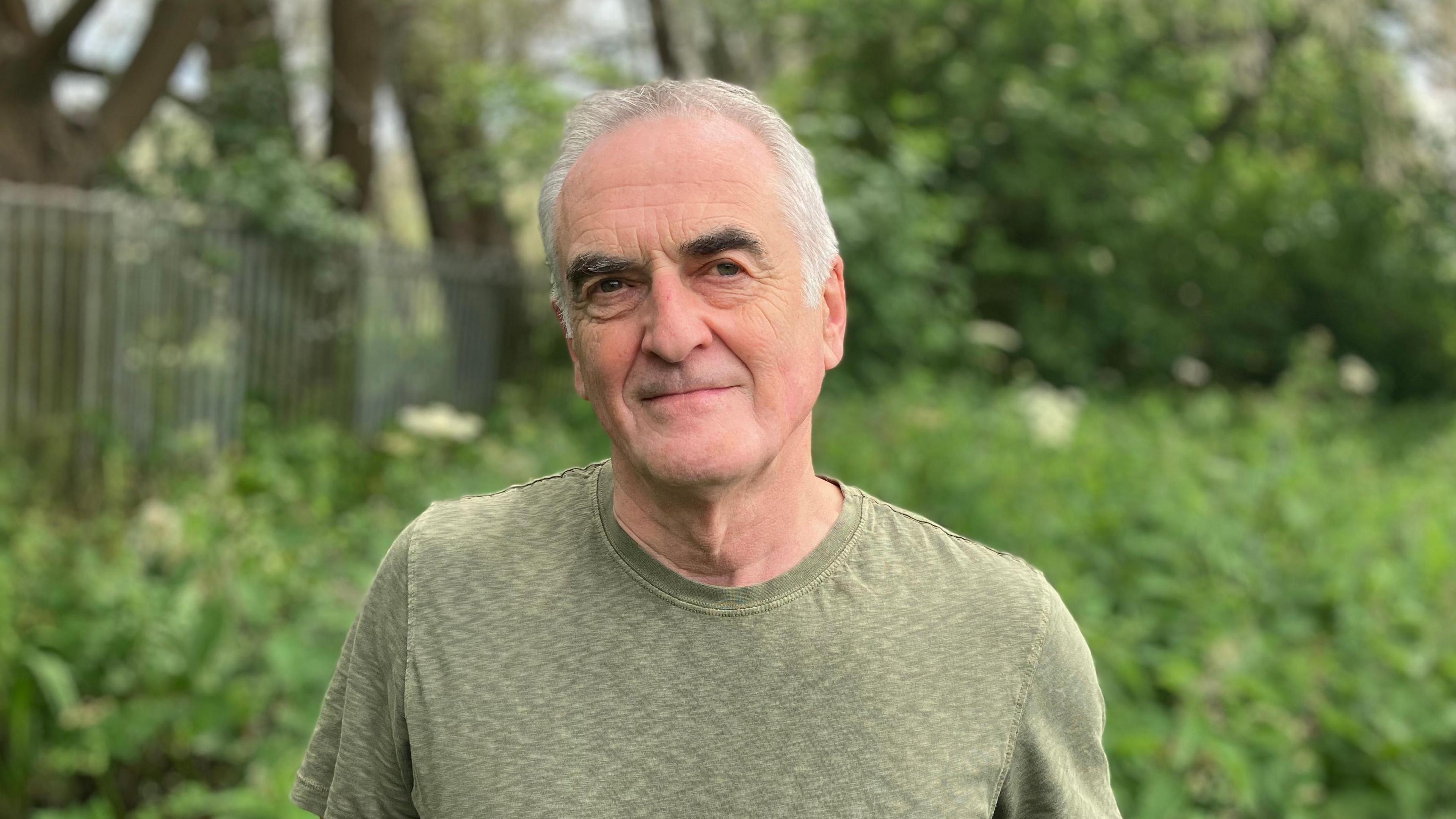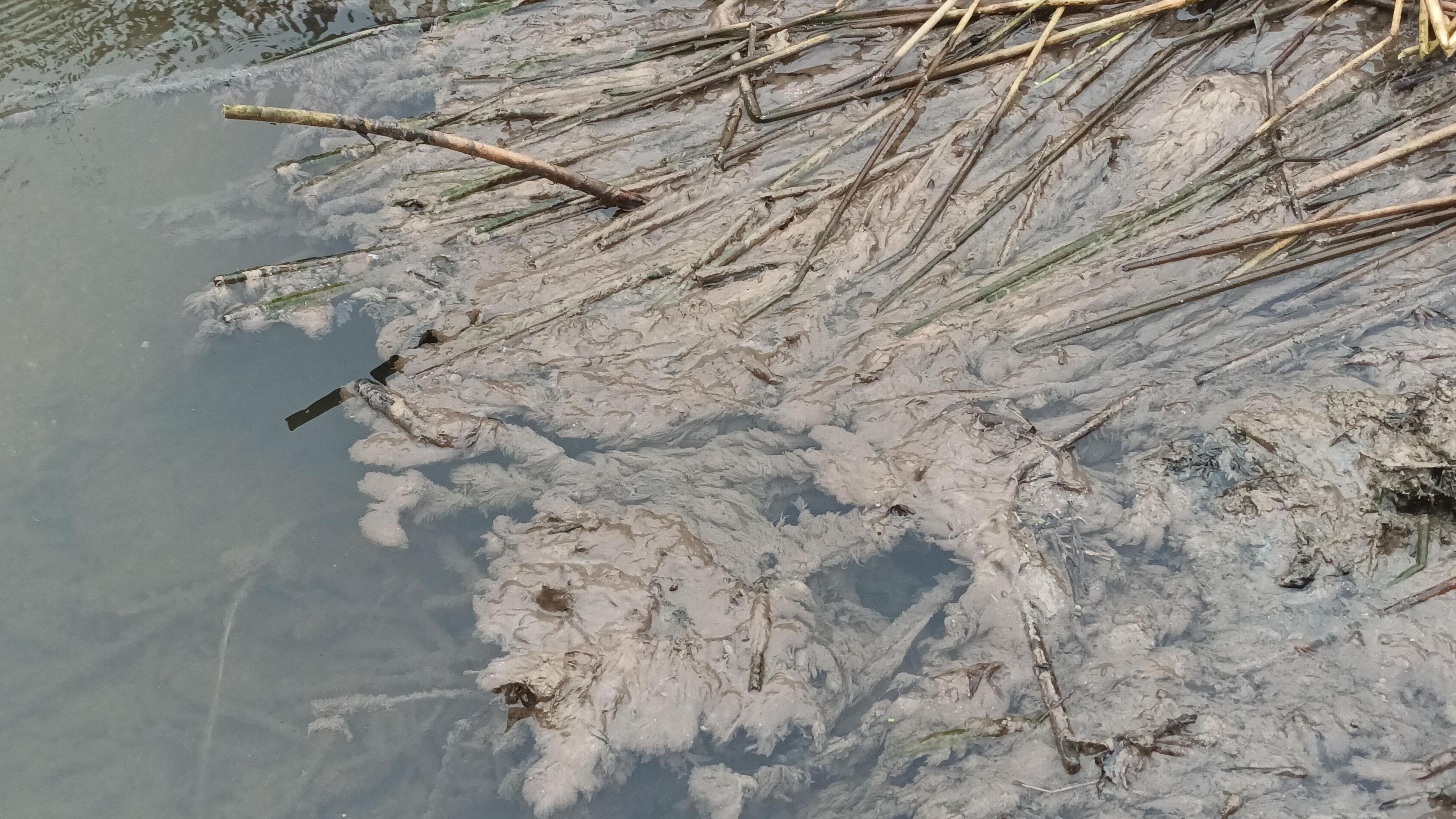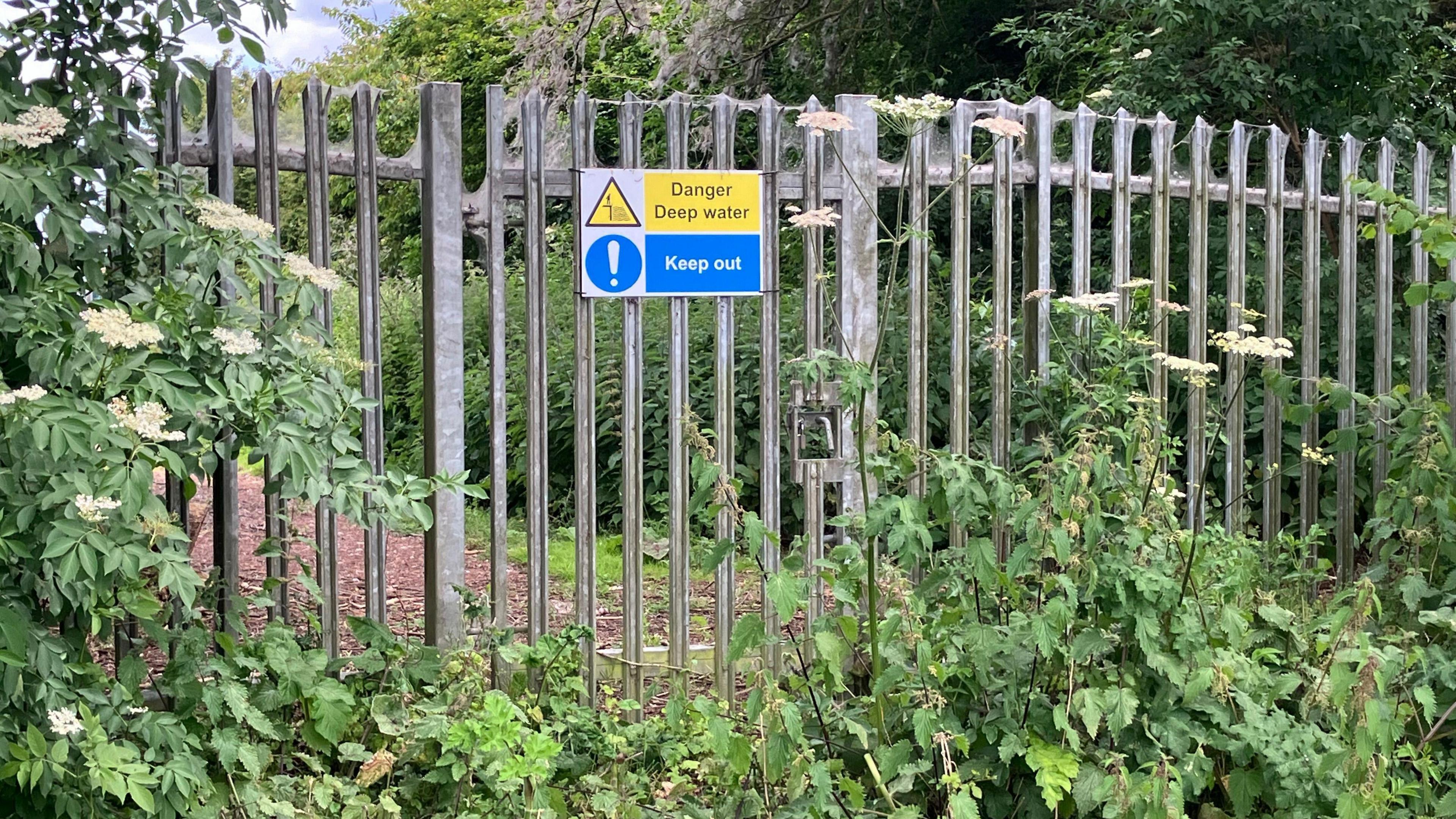Sewage in rivers 'needs a bold solution'

Ash Smith, from Windrush Against Sewage Pollution (WASP), said leaders need to "step up" and fix pollution problems
- Published
There are calls for the next government to "do something bold" and "fix" the problem of sewage going into Oxfordshire’s rivers.
Water companies are only supposed to discharge sewage into rivers during weather events like storms, to stop homes and businesses flooding.
But there is evidence the practice is common place, with several storm overflows still discharging sewage in the Thames Water area, external during recent dryer weather.
At one point in the past winter, 229 Thames Water overflows were discharging simultaneously into watercourses.
Ash Smith from says he’s been monitoring sewage going from the Witney Sewage Treatment Works into Colwell Brook.
He said: “In the last 12 months, from this particular place, just over three-and-a-half months of untreated sewage has been dumped.
“It’s a scandal of such proportions that I think it will be hard for people to believe how we’ve been conned, how our governments have let us be conned. And it’s time for a government to step up and fix it. Do something bold – fix it.”
Thames Water said a project to upgrade Witney Sewage Treatment Works was “ahead of schedule”, and would be completed this year.

Pollution in Colwell Brook was spotted by the WASP group
A spokesperson said: “While all discharges are unacceptable, the sewage system was historically designed to work in this way, to prevent sewage backing up into people’s homes.
"We have published plans to upgrade 250 of our sites across the region including our Witney sewage treatment works.
“This site is being upgraded at a cost of more than £17m and will provide a major increase in treatment capacity, from 240 to 399 litres per second, reducing the need for untreated discharges in wet weather.”
After the issue of sewage pollution in our rivers was raised by voters via Your Voice, Your Vote, BBC Oxford has been putting the problem to candidates in Witney.
Robert Courts, Conservative candidate, said he’d been raising the issue with water company bosses since he was first elected to the seat in 2016.
He added: “The anger that people feel is justified and I have tirelessly conveyed this to the water companies, whose job it is to prevent this from happening.”

Thames Water said Witney's sewage treatment works would be upgraded
Antonio Weiss, who is the Labour candidate, said his party had a plan to tackle the issue: “It’s those blocking of payments, those automatic fines, clamping down much, much harder on criminal charges and just ending this regime of self-reporting.”
Charlie Maynard, who is standing for the Liberal Democrats, said he wanted a change in how water companies are run: “The Lib Dems want to transform water companies into Public Benefit Companies, install a tough new regulator, revoke licenses of failing companies and set legally-binding targets on sewage discharges.”
Andrew Prosser, Green Party candidate, wants to see water companies renationalised: “Half measures aren’t going to work. The Green Party will bring water companies back into permanent public ownership.”
Independent candidate Barry Ingleton also told us he would campaign for water companies to be brought back into the public domain.
Richard Langridge from Reform UK said his party would "immediately ban" the practice of polluting our water courses and "fine heavily" those that do so.
David Cox from the Heritage Party said "significant and sustained investment" was needed into building a system that separates sewage pipes from rainwater overspill.
You can see a full list of candidates in the Witney constituency here.

What really matters to you in this general election? What is the one issue that will influence your vote? Click the button below to submit your idea, and it could be featured on the BBC.
